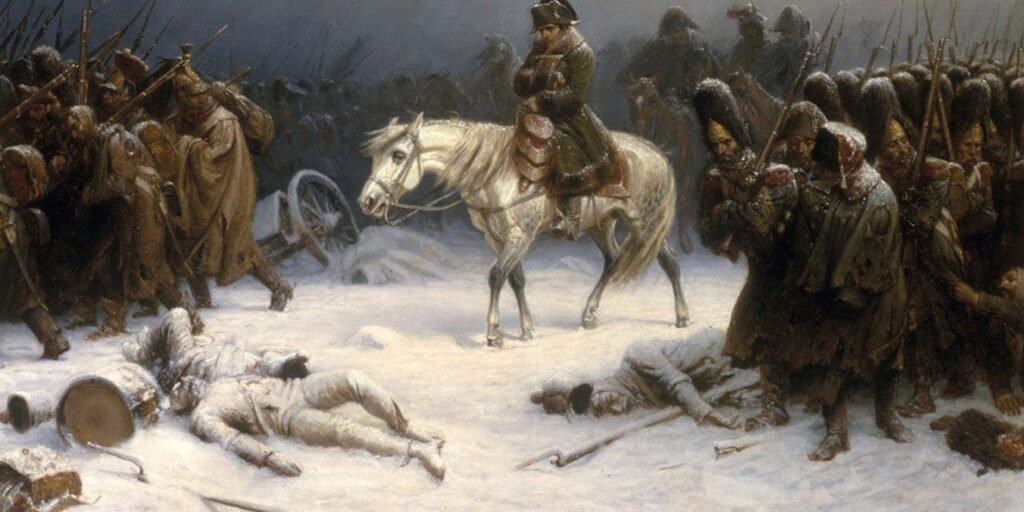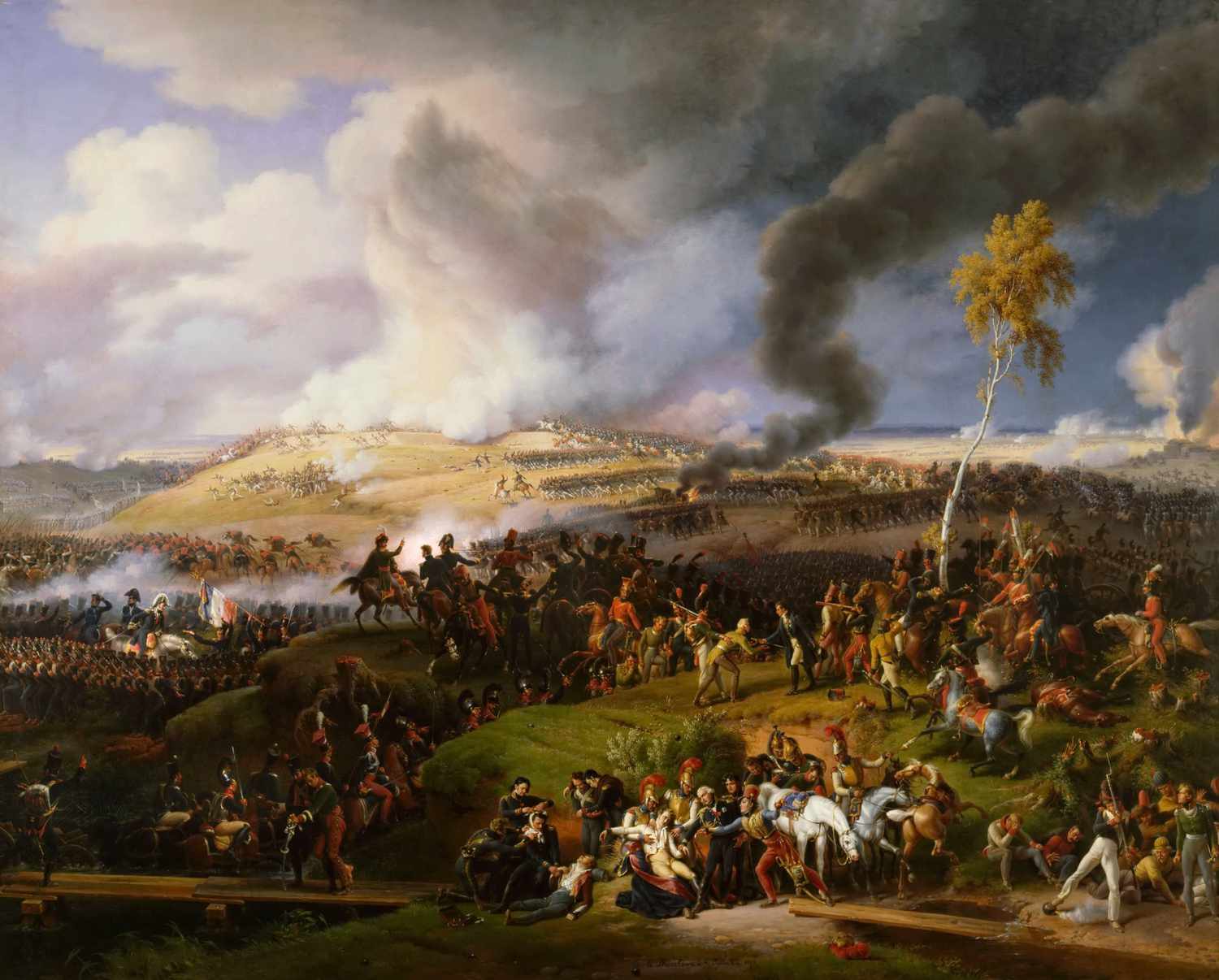At the end of almost every July 4th fireworks show, there’s a grand finale. Many times, that finale of explosions is accompanied by a stirring rendition of Pyotr Ilyich Tchaikovsky’s “1812 Overture.” It seems a natural fit for independence day: a rousing theme that ends with a volley of cannon fire and chiming bells.

The only problem is that the theme, though based on a war, has nothing to do with the United States and certainly nothing to do with the War of 1812. The only thing the U.S. has in common with the song is that Russia and the United States were both at war in 1812, though not with each other.
The “1812 Overture” and Tchaikovsky’s Tribute to Russia’s Victory
Tchaikovsky debuted what is probably his most famous work In Moscow in August 1882. The overture was meant to commemorate the 70th anniversary of Russia’s victory over Napoleon’s invasion in 1812. The French emperor invaded Russia at the head of more than half a million men.

At Borodino, some 75 miles west of Moscow, Napoleon met Russian Gen. Mikhail Kutuzov. When the smoke cleared, an estimated 100,000 men were killed or wounded. The French won the battle, but Napoleon’s victory was hard won. His supply lines were overextended, and the battle had given time for the Russians to burn Moscow and take everything of value.
Napoleon was eventually forced to retreat in the dead of winter. He could not feed or properly clothe his massive army, and as they made the long walk back to France, Russian cossacks harassed them the entire way. By the time they left Russia, only 10,000 men were still alive.
The “1812 Overture” and Its Musical Depiction of Victory
In the song, as in real life, France loses the war. The French national anthem, “La Marseillaise,” can be heard prominently during the 13-minute overture. It’s soon drowned out under cannon fire and the melody of “God Save the Tsar.”

Napoleon’s ultimate defeat after his retreat from Moscow did have an effect on the Americans during the War of 1812. With the French defeated, Britain could move its best troops from European battlefields to North America, where they would inflict stunning defeats on the Americans, including the burning of Washington, D.C.
Read About Other Military Myths and Legends
If you enjoyed learning about unexpected role of 1812 Overture in America’s War, we invite you to read about other military myths and legends on our blog. You will also find military book reviews, veterans’ service reflections, famous military units and more on the TogetherWeServed.com blog. If you are a veteran, find your military buddies, view historic boot camp photos, build a printable military service plaque, and more on TogetherWeServed.com today.

A great article on 1812 events..but have you heard the actual translation to the French Anthem..?
La Marseillaise is calling for armed rebellion (to put it nicely) a strange banner to wave at least.